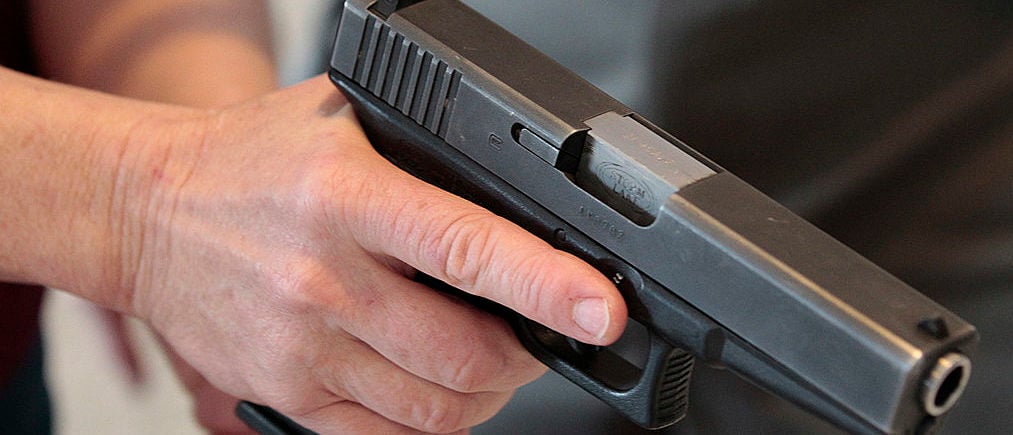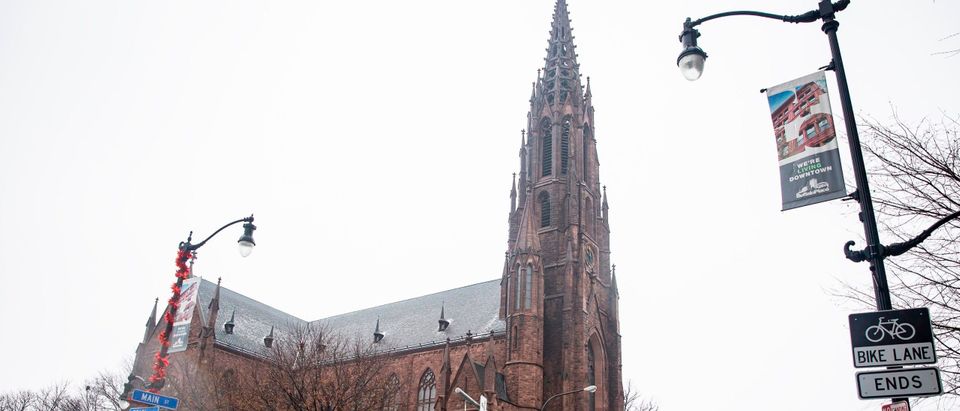- Recent changes to New York’s concealed carry laws are not enough for many religious communities, according to experts that spoke with the Daily Caller News Foundation.
- Not long after the Supreme Court struck down part of New York’s concealed carry laws, the state passed the Concealed Carry Improvement Act, which banned individuals from carrying in “sensitive locations,” including houses of worship.
- “This really doesn’t do a whole lot for many houses of worship,” Amy Swearer, a senior legal fellow in The Heritage Foundation’s Edwin Meese III Center for Legal and Judicial Studies, told the DCNF.
New York recently amended part of its concealed carry law to give houses of worship more freedom to protect themselves, but religious advocates that spoke with the Daily Caller News Foundation say the law isn’t enough to adequately protect religious communities.
The state passed Democratic Gov. Kathy Hochul’s 2024 budget earlier this month, amending New York’s Concealed Carry Improvement Act (CCIA), which bans persons from carrying firearms inside places of worship, to exempt armed “persons responsible for security at such place(s) of worship.” Despite this, religious advocates and experts argue it does little to protect churches from rising hatred, pointing to vague language in the law that makes it unclear how churches can defend themselves. (RELATED: Jewish Man Attacked While Entering New York Synagogue Amid Spike In Antisemitic Hate Crimes)
Tzvi Waldman, head of the NYS Jewish Gun Club, an organization that offers “security training for houses of worship,” told the DCNF that the changes to the law were not made with protecting his faith in mind.
“They didn’t come in thinking, ‘What can we do to make the community safer, to make people safer,'” Waldman explained. “Because if they were they would have discussed it with us to try to figure out what we really need, and none of that happened.”
A recent report from the Family Research Council found almost 70 churches have been attacked in the first three months of 2023. After the overturning of Roe v. Wade by the Supreme Court in June 2022, churches experienced a host of attacks, including vandalism, and arson and in several cases, church members were assaulted.
Antisemitism has also been on the rise, according to recent FBI hate crime statistics, which showed there were 814 anti-Jewish incidents reported in 2021.
Amy Swearer, a senior legal fellow in The Heritage Foundation’s Edwin Meese III Center for Legal and Judicial Studies, told the DCNF that the changes to New York’s law were “not near enough” and don’t take into account how religious communities operate.
“This really doesn’t do a whole lot for many houses of worship,” Swearer said. “You have people inside those churches for various church programs or functions, daycares or pastors and secretaries and choir rehearsals. Those are all occurring throughout the week, and even if they can have armed private security, during you know, one or two hours on Sunday, that doesn’t take care of the rest of the week.”
Swearer and Waldman also noted the dangers for religious members during their commute to their place of worship, since they would be forced to remain unarmed to enter the building, or alternatively, leave their weapons in their vehicle.
“What if the church is in a very dangerous area and people can’t carry to and from church?” Swearer told the DCNF. “Now you have to keep your gun locked in your car, in the parking lot, and every criminal in the state of New York knows that’s where the guns are going to have to be kept.”

WEST VALLEY CITY, UT – DECEMBER 27: A Utah teacher is shown how to handle a handgun by instructor Clint Simon at a concealed-weapons training class for 200 Utah teachers on December 27, 2012, in West Valley City, Utah. (Photo by George Frey/Getty Images)
New York’s ban has been the subject of controversy since the Supreme Court ruled in New York State Rifle & Pistol Association Inc. v. Bruen in 2022 that the state’s citizens did not need to demonstrate a need to defend themselves to obtain a concealed carry license. Weeks later, the state passed the CCIA, which, among other things, banned individuals from carrying firearms in “sensitive locations,” including houses of worship with the exception of private security.
In the changes adopted through the governor’s 2024 budget, the term “security guard” is defined as individuals “who have been granted a special armed registration card, while at the location of their employment and during their work hours as such a security guard.”
Swearer told the DCNF that Hochul’s changes to the CCIA are “vague” and don’t give religious communities clear guidelines to work with.
“[I]t’s kind of vague as to whether that can just be a concealed carry permit holder who is assigned to a security team or whether it has to be a licensed, paid security officer,” Swearer said.
However, the law’s defenders argue the restrictions are necessary to reduce gun violence.
“While some Justices on the Supreme Court appear unconcerned about the gun violence epidemic raging across the United States, fortunately New York’s political leaders recognize their duty to protect families and communities, and realize that the Constitution allows states to enact gun violence prevention laws to protect their residents,” Jonathan Lowy, chief counsel of gun control advocacy group Brady, said following CCIA’s passage.
Hochul defended the CCIA after the Supreme Court ruled that the law must remain intact during the ongoing lawsuits, calling it “an important and appropriate step.”
Waldman’s organization was one of several that filed a lawsuit against the CCIA due to concerns about its restrictions on religious communities, arguing that churches should not be exempt from Second Amendment protection.
First Liberty Institute (FLI) filed a lawsuit on behalf of His Tabernacle Family Church in New York in 2022 against the CCIA. FLI Senior Counsel Jeremy Dys told the DCNF that he believed the recent changes were only made in an attempt to halt any legal repercussions.
“The state of New York is having a hard time right now [balancing] constitutional issues and realizing that the First and Second Amendments are an appropriate [barrier] to state actors who wish to silence people of faith, and especially people of faith who would also exercise their Second Amendment rights,” Dys said. “I suspect the state of New York is now realizing that they moved way too fast and are kind of stuck. They made promises to their constituents, that the Constitution cannot allow them to follow through on, and that’s a good thing.”
Hochul did not respond to the Daily Caller News Foundation’s request for comment.
All content created by the Daily Caller News Foundation, an independent and nonpartisan newswire service, is available without charge to any legitimate news publisher that can provide a large audience. All republished articles must include our logo, our reporter’s byline and their DCNF affiliation. For any questions about our guidelines or partnering with us, please contact licensing@dailycallernewsfoundation.org.


